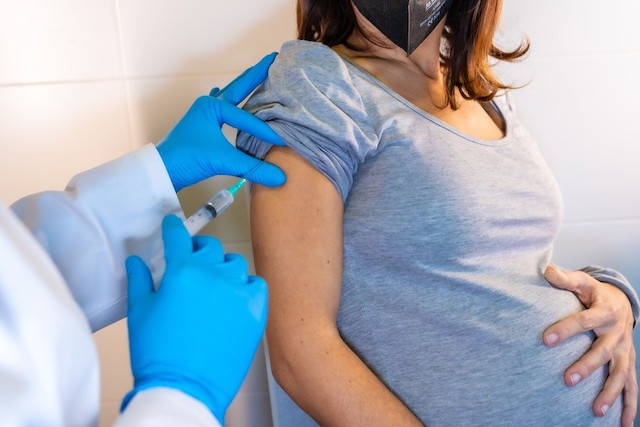That’s according to the ministry of health website, following the recommendation of the superior council of infectious diseases (CSMI).
Viral vector vaccines, such as those by AstraZeneca or Johnson & Johnson, are not yet recommended in this case. It is not that their ineffectiveness or their dangerousness have been demonstrated. On the contrary, the CSMI notes that "the vaccines currently available contain adenoviruses devoid of infectious power and no particular harmful effects are expected on the development of the fetus."
Not enough data
But since "very little data on the effect of vaccination with viral vector vaccines on pregnancy is available," the government prefers to be cautious. Pending the results of clinical studies which "are expected in the coming months."
Regarding mRNA vaccines, "there [is] only limited data on the vaccination of pregnant women," the CSMI notes. But as "no risk associated with this vaccination has been recorded to date," it seems sufficient to the CSMI to ensure that "there is no reason to believe that mRNA vaccines would have a different effect in pregnant women than in other adults.” The efficacy in pregnant women is "comparable to that observed in women of the same age."
No contraindication
Conclusion: "Pregnancy is not a contraindication to vaccination," according to the CSMI. Given their vulnerability to covid-19 and the risks of premature delivery or miscarriage in the event of infection, it is even a matter of vaccinating them as a priority--an even more necessary prioritisation in the event of comorbidity or high occupational exposure to covid.
If possible, this vaccination should take place after the first ten weeks of pregnancy. But "women wishing to become pregnant are also advised not to postpone vaccination given the absence of risk of impaired fertility."
Recommended during breastfeeding
All vaccines, both viral vector and mRNA, have been recommended for women who are breastfeeding. However, no studies have been done on the effects of the vaccine during breastfeeding.
"The vaccines currently available are administered by intramuscular injection, the probability that the vaccine or one of its components passes into breast milk is very low" and "the probability of an effect on the breastfed infant is almost zero," the CSMI explains. Breastfeeding should not "delay the administration of the vaccination," it concludes.
This article was published in French on Paperjam and has been translated and edited for Delano.
